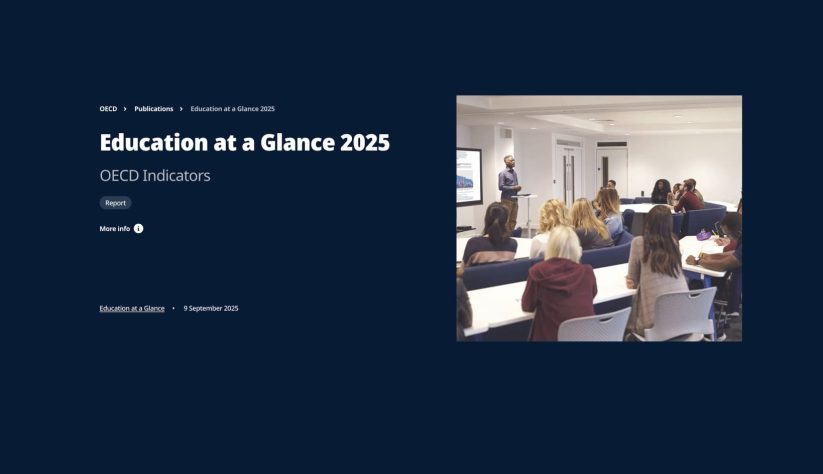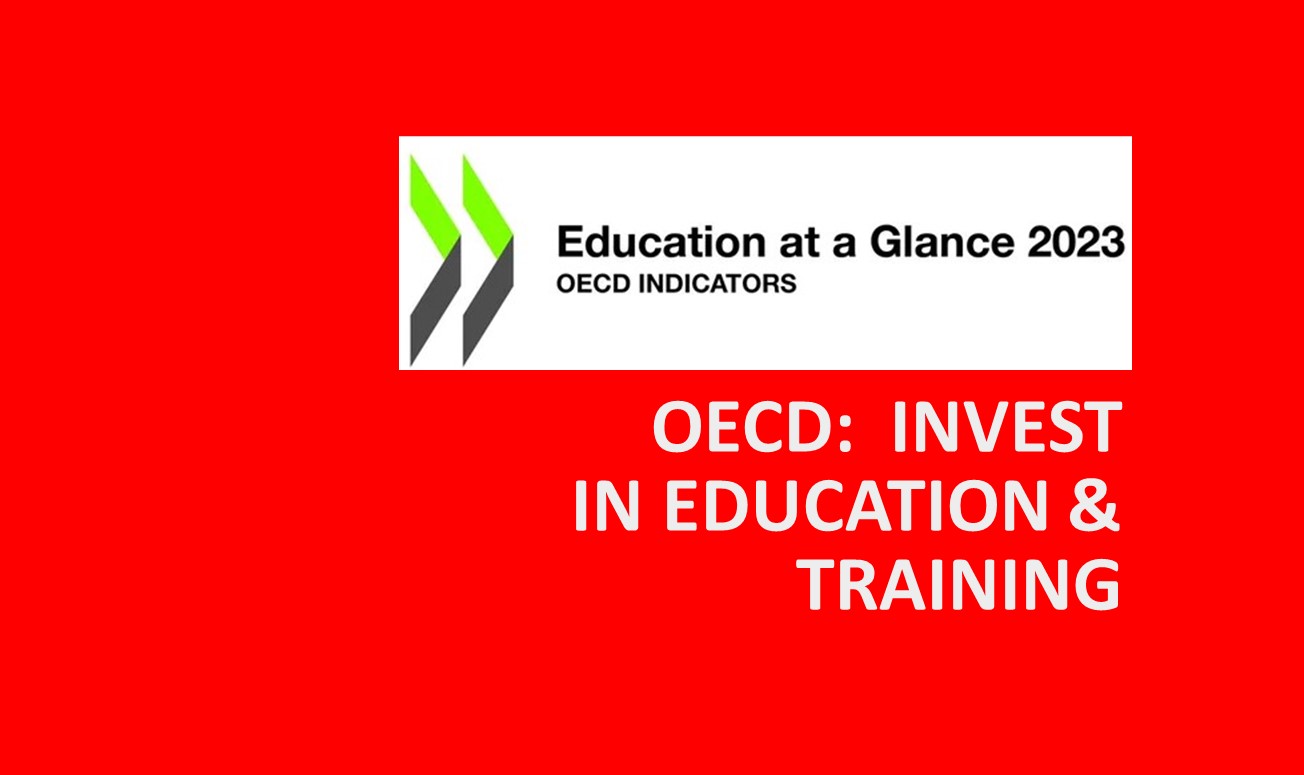Education and skills
TUAC engages with the OECD’s work on both initial education and on adult learning, participating in the meetings of the OECD’s Skills Advisory Group, Education Policy Committee, the Centre for Educational Research and Innovation Governing Board, and their respective working parties.
Key priorities include advocating for greater OECD recognition and discussion of policy measures to facilitate and improve access to lifelong learning opportunities and strengthening the OECD’s calls for investment to improve equity in education and the working conditions of teachers.
TUAC’s work on education and skills is led by Sarah Jameson. For more information, please contact jameson@tuac.org.

Skills Outlook highlights persistent inequalities but neglects collective bargaining dimension, warns TUAC
Persistent skills inequalities are holding back both workers and economies, according to the latest OECD Skills Outlook published on 9 December. While TUAC welcomes the report’s recognition that these disparities are rooted in circumstances beyond individuals’ control, trade unions ...

Education at a Glance 2025: Trade Unions Call for Investment and Workforce Protection
Trade unions are calling for increased education investment, strengthened teaching profession support, and expanded support for learners following today’s publication of the OECD’s Education at a Glance 2025, which exposed mounting workforce pressures and persistent educational ...

TUAC calls for urgent action on rising inequality and workers’ rights
TUAC General Secretary Veronica Nilsson warned of growing inequality and workers’ rights challenges during the World Economic Forum’s “Closing the Jobs Gap” panel today. Speaking alongside the ILO Director-General and business leaders, Nilsson highlighted growing ...

OECD backs free training, but not a right to training
The OECD’s recently launched Digital Economy Outlook contains calls for affordable or free training programmes, tackling the digital gender gap and engaging with trade unions on skills. The OECD calls on the governments to: • Provide “access to affordable or free training programmes and ...

OECD highlights need for action to tackle inequalities in education
Launched today, the OECD’s 2024 Education at a Glance underscores the urgent need for policy action to address inequalities in education and in social and labour market outcomes. Education At A Glance 2024 shows that access to education, study choices, completion rates and labour market outcomes ...

Dialogue with unions and more regulation needed for digital education
The OECD today released its Digital Education Outlook 2023. The Outlook makes much of the potential opportunities offered by digital technologies (about which there is currently very little evidence), it also identifies some key risks: Increased inequalities and digital divides. Reliable ...

Skills Outlook 2023: Skills for a Resilient Green and Digital Transition
The OECD today published the 2023 edition of its biannual Skills Outlook, “Skills for a Resilient Green and Digital Transition.” Overall, the Outlook makes a very welcome contribution to OECD analysis and discussion on the green and digital transitions. It underscores the need to take into ...

OECD makes powerful case for investing in education and training
The OECD’s Education at a Glance report provides strong evidence and powerful arguments to invest in and strengthen education, the teaching profession and vocational education and training. Among its findings and recommendations are: Higher levels of education are associated with positive ...

Trade unions and OECD’s role in education policy
Interview with Larry Flanagan, new chair of TUAC’s Education and Skills Working Group. Question Why do you think it is important for trade unions to follow and engage with the work of the OECD in education and skills? Larry Flanagan The OECD is a highly influential body in terms of education ...
OECD Education at a Glance 2021: A much needed focus on equity (ENG/FR)
(Version française ci-dessous) On 16 September 2021, the OECD released the Education at a Glance (EAG) 2021 report. The report published annually includes data on educational outcomes and, this time, a specific focus on equity and country progress in achieving the United Nations’ Education ...
